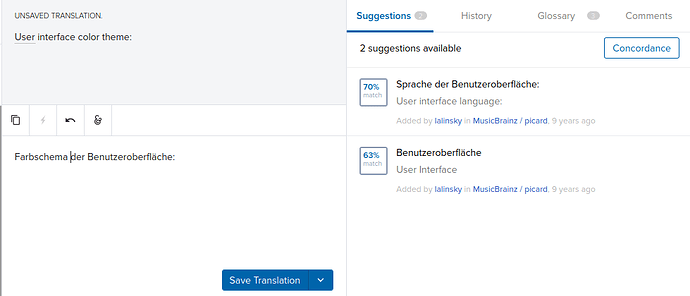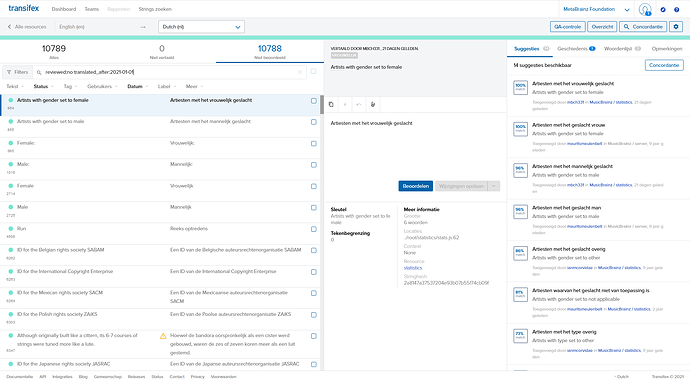Yes. Actually you can both see it in Weblate and Github. See for example the commit history for this French translation file of Tilix (a Linux terminal emulator): History for po/fr.po - gnunn1/tilix · GitHub
You can see who did what changes at what date. But you can also look at the activity history of translations on Weblate: Tilix/Translations — French @ Hosted Weblate
Having Weblate doing the commit actually in the name of the author is one of the biggest advantages in my opinion.
If you compare that to the history of French translations for Picard: History for po/fr.po - metabrainz/picard · GitHub
It’s only updated when we sync translations. And that means the authors are only the core developers, recently mostly zas and me. I mean zas at least is French, but my French vocabulary is about 10 words or so 
Because I don’t see the benefit of a translation system, it does not translate for you.
Well, a text editor does not write the text for you and a video editor does not do the film for you  It’s a tool that helps you translate.
It’s a tool that helps you translate.
If you do serious translation work you really want to have a translation memory, concordance search and a glossary. Not only does it speed up the work, it also helps keeping a consistent translation.
If you are translating user interfaces you often also need some context how the string you are looking it is actually used. It can make a big difference if this is on a button or some kind of notification, the translation could vary. When we asked for translations of the Picard installer feedback was that it was difficult to do without seeing how the texts are actually used, when I provided screenshots that helped a lot.
Weblate has this ability built-in, see e.g. Peek/Translations — French @ Hosted Weblate: Press keys…
A big advantage of an online translation tool is that it lowers barriers. Teaching people to handle both Git and a tool like Poedit is much more of a barrier than a single translation tool.
But actually here is another advantage of Weblate: It can handle translations both updated via Weblate and via Git, it can synchronize two way. With Transifex if you submit us a Picard translation update via Git we might merge it and then manually push it to Transifex, probably overwriting any changes someone else has done there. Or we see the conflict, but don’t know how to solve it without knowing the language. So in practice I will send you over to Transifex instead and not merge your changes.
Several times I wanted to fix French in MetaBrainz sites, several times I had to give up, not being sure that my fixes will be taken and overwritten randomly few days later, with no review validation process.
The only way to be save from this is setting up a proper translation team with a review process. But you are only able to do this if you actually have community members actively working on translations. That’s easier to do for more widely spoken languages than for others. So ideally you want to be able to setup this flexible per language.
Understandable  Michal, who is developing this, has made a business around this open source project, which is pretty great. But he also offers hosted weblate for free for open source projects, which is also really great. In case of MetaBrainz I would expect that MB hosts this itself, both for fairness and to be more flexible.
Michal, who is developing this, has made a business around this open source project, which is pretty great. But he also offers hosted weblate for free for open source projects, which is also really great. In case of MetaBrainz I would expect that MB hosts this itself, both for fairness and to be more flexible.

